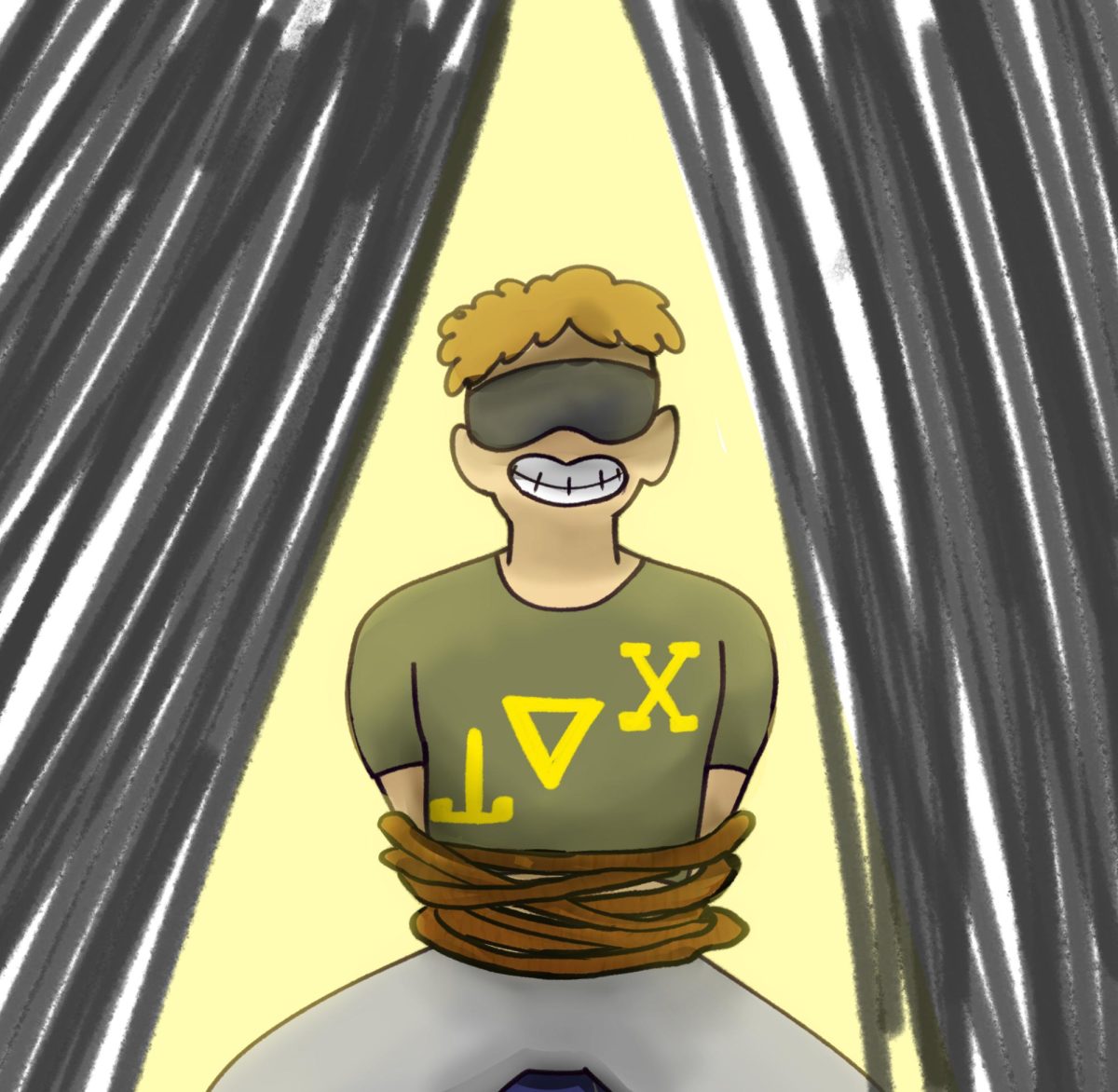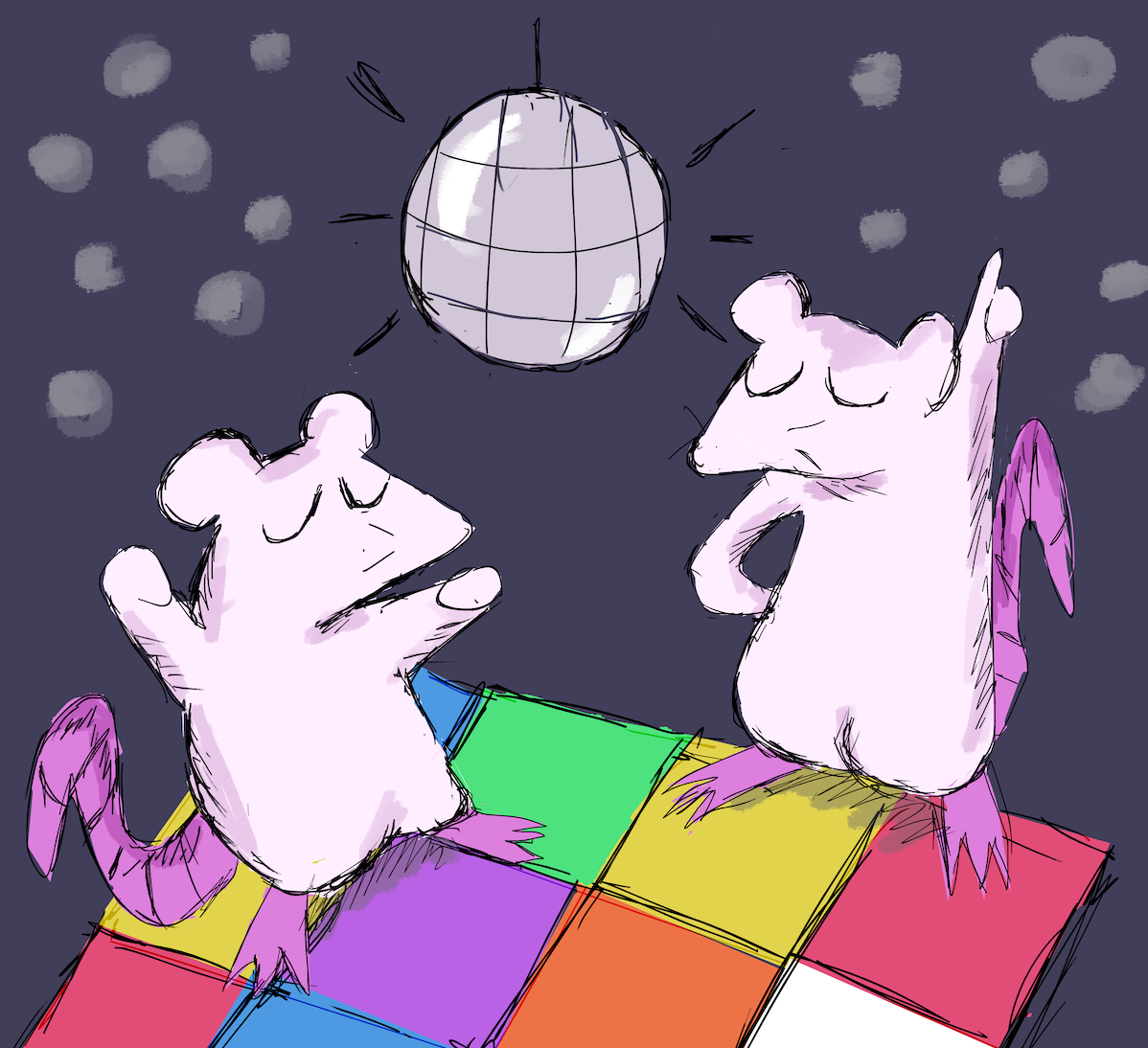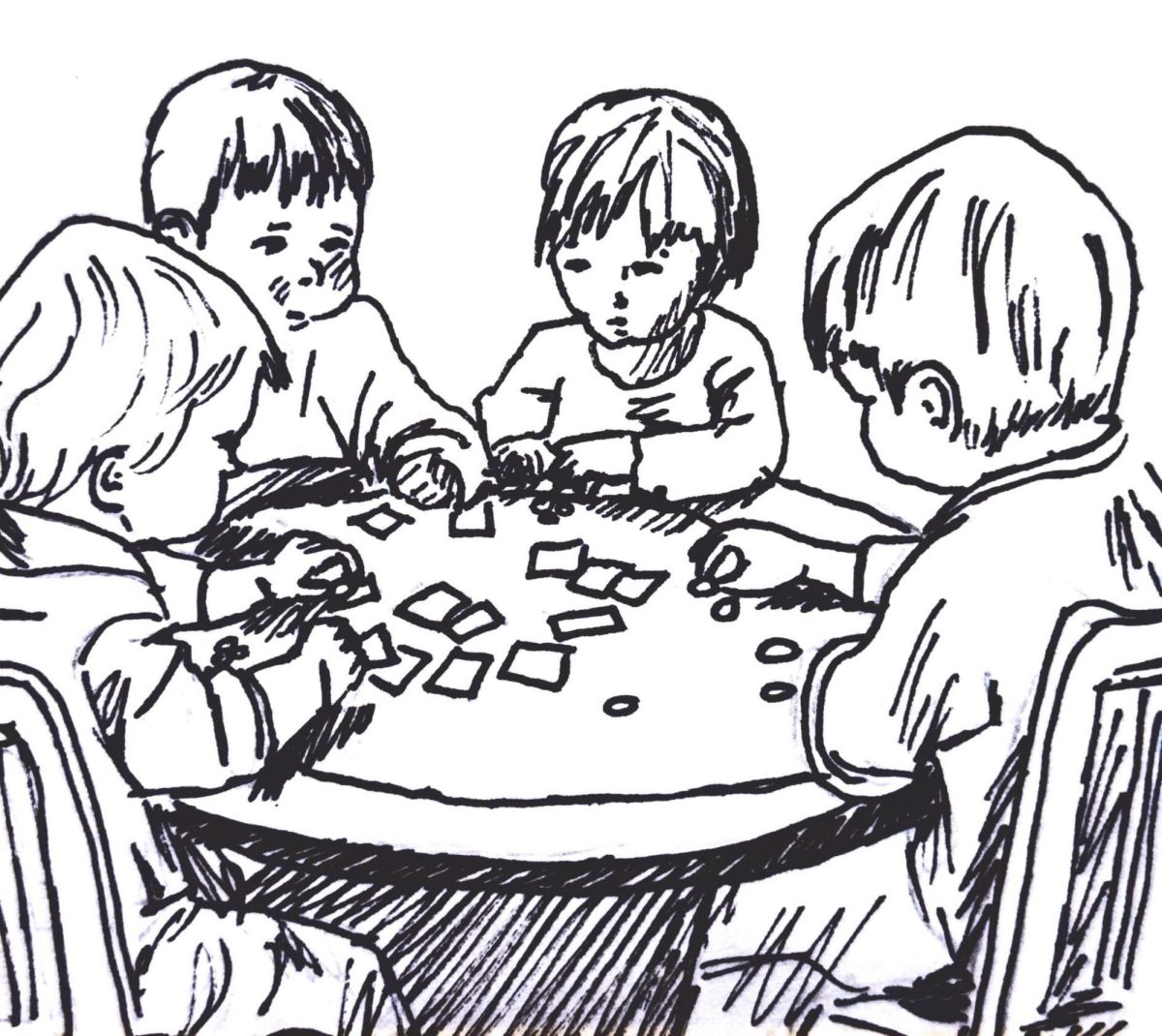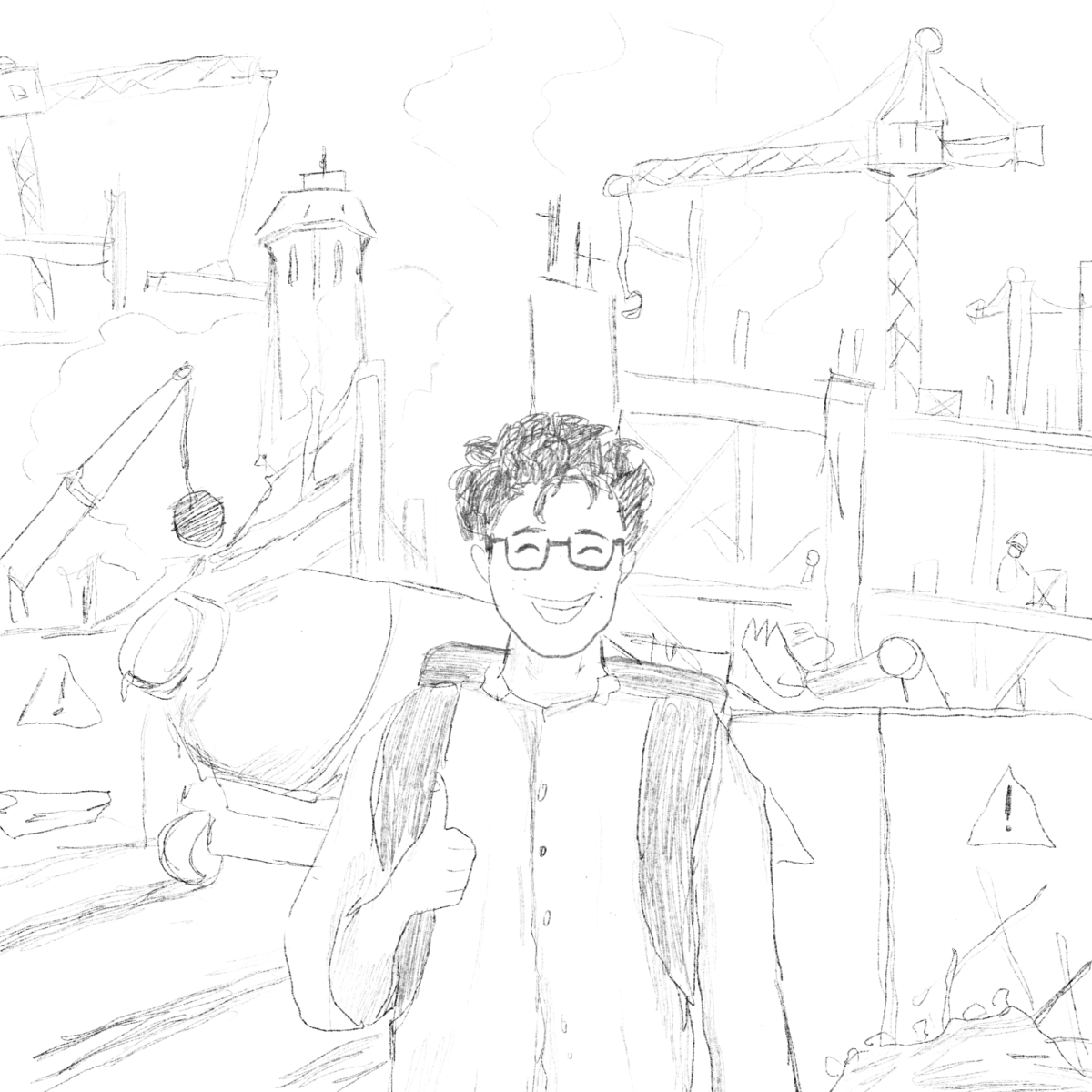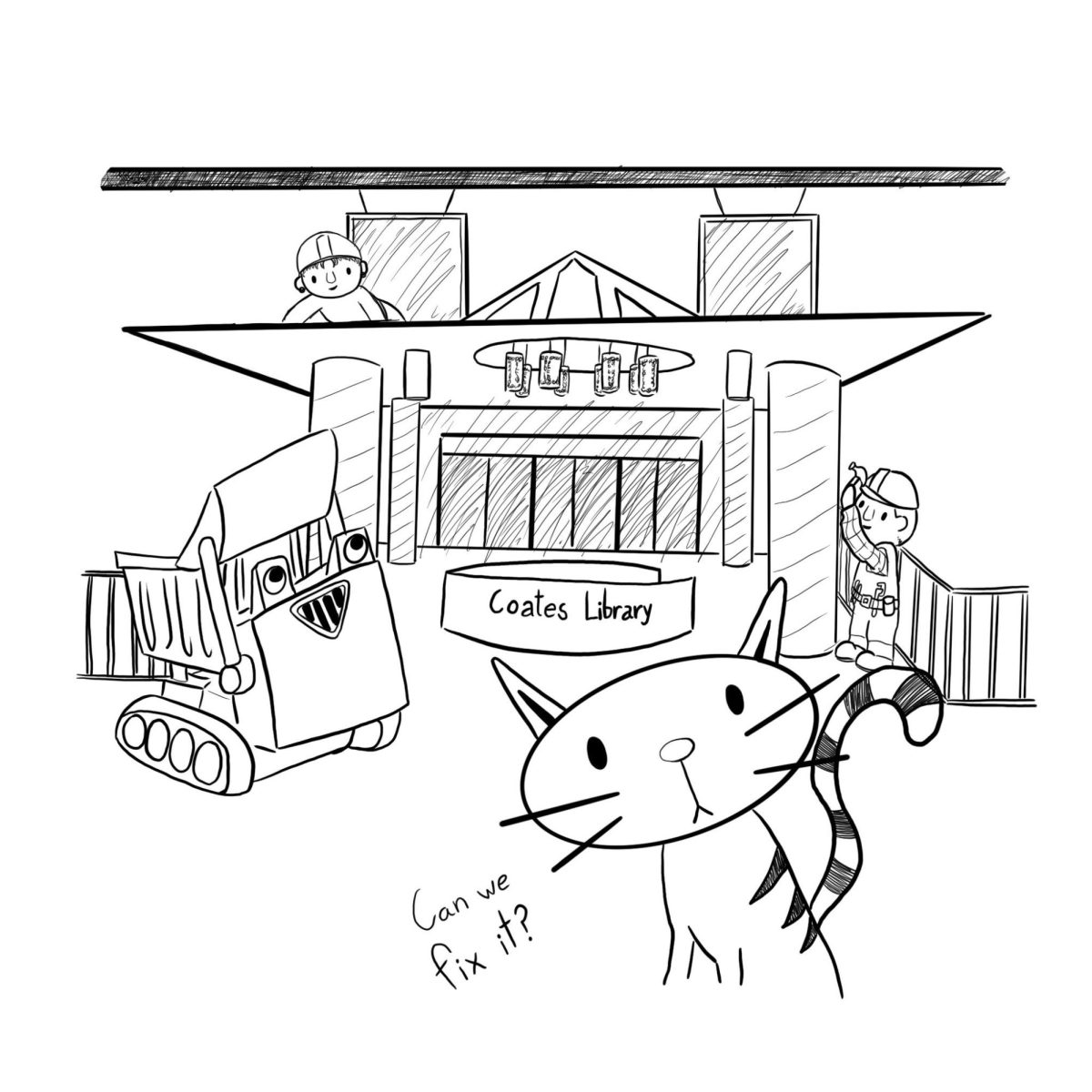Illustration by Ren Rader
A great film score elevates the best parts of a film without distracting the viewer as the story unfolds. Movies with great music can grab us with one particular song, a timeless and evocative theme or vocal performance that is forever at the hip of the film it accompanies. In any case, when movies have great music, they are all the more equipped to captivate, terrify, delight or move us to tears. What words alone cannot do, music often can; thus, some of the most memorable scores are the ones that accompany films about love. Whether the score gently balances other elements of the film or directly narrates the love story, movies that move us capture the sound of love through their use of music.
Like the production design and cinematography that enrich the world inside the movie, the score of the wonderfully strange 2017 romance, “The Shape of Water,” is absolutely magical. The world of this fantastical Beauty-and-the-Beast-esque love story is overflowing with spectacular sights and sounds, the latter thanks to Alexandre Desplat’s gorgeous score. He uniquely uses the sound of water within the score to great thematic effect. In an interview with Deadline, Desplat remarks that the instrumentation in the film score is used to emphasize the feeling of being underwater — a motif used over the course of the film to symbolize being in love. The gentle, immersive sounds evoke warmth, comfort, longing and pain as they present themselves over the course of the film, shaped by the intertwined natures of water and love.
The use of music in a film like “La La Land” (2016) does not exactly match the subtlety of a score like that of “The Shape of Water,” yet, in this musical, love unfurls through the energetic, hybridized songs of Justin Hurwitz’s Oscar-winning score. Though “A Lovely Night” serves as a cheeky ode to the moment of romantic realization between Mia (Emma Stone) and Sebastian (Ryan Gosling), and the fluttering waltz, “Planetarium,” elevates the magic of their relationship, the real emotional power is in the compilation of many of the score’s melodies at the very end of the film. In the punch-in-the-gut ending of “La La Land,” Hurwitz’s “Epilogue” depicts the imagined happily-ever-after love story of the leads who break up in order to follow their dreams. As we experience the film’s glorious score in full, the emotional impact is compounded, and what we wish could be true for the characters is teased with the most beautiful cruelty. The closing number captures the melodies of the love that the film built for us to root for, only to take it away from us so that the protagonists can follow their artistic dreams.
In “The Shape of Water,” love is captured through the immersive sounds of a watery fantasy, while in “La La Land,” a jazzy, old Hollywood hybrid sound narrates a story of love and loss. The composers of these scores captured the essence of the story through repeated motifs or evocative musical storytelling. When it comes to capturing the feeling of love in a particular cinematic context, though, there is no more gorgeously fitting score than that of 2005’s “Brokeback Mountain” — which also won the score Oscar for that year. The gentle, guitar-forward melodies of Gustavo Santaolalla paint the western landscapes of the film with a sound fitting of a passionate but strained relationship between the two leads. The epic solitude of the natural world is what keeps the two male lovers at the center of the film from the unforgiving society that forces them apart. The score of “Brokeback Mountain” is as tender as it is epic, an echo of both love and the natural world where it blossoms.
Revisiting these scores after following the love stories at the center of their films is a transporting experience. Many of us have watched cinematic romances that stick with us long after the credits have rolled. Whether or not we notice how music helps shape these love stories, the sound of on-screen love can be incredibly evocative. Whenever you feel a hankering for romance but do not have the time to watch an entire film, consider opting for its soundtrack and see where it takes you.



